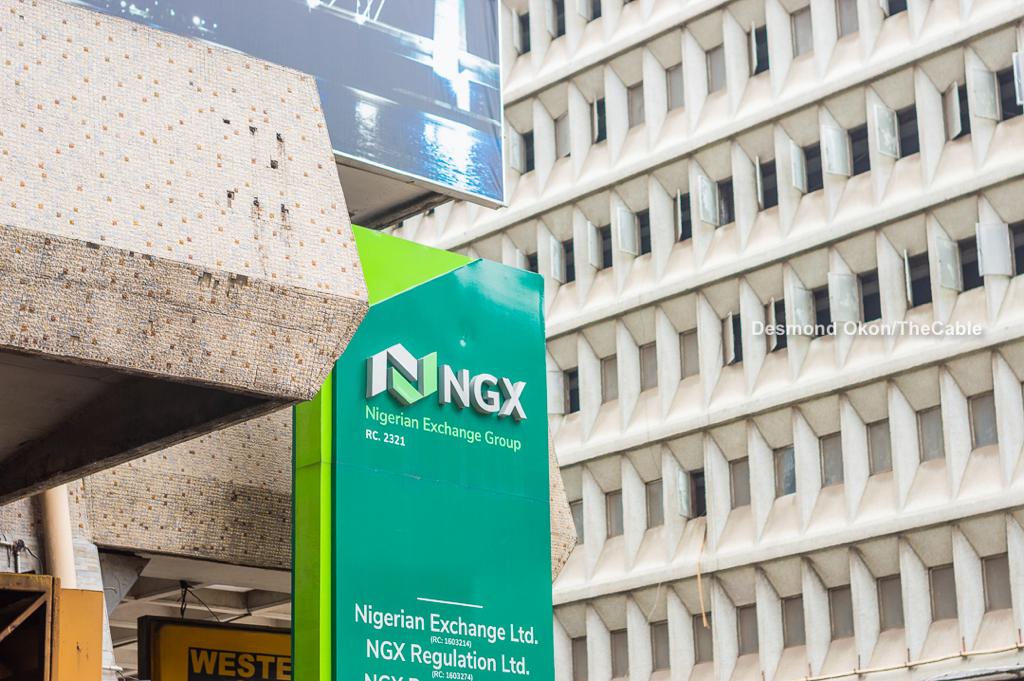27.5% MPR: 10 DMBs Generate N4.9trn from Loans to Customers, Others - THISDAYLIVE
As the Monetary Policy Committee (MPC) of the Central Bank of Nigeria (CBN) retained Monetary Policy Rate (MPR) at 27.50 per cent, a total of 10 Deposit Money Banks (DMBs) generated about N4.9 trillion as interest income from loans & advances to customers, banks and yield on investment in securities, in first quarter (Q1) 2025.
This is about 42 per cent increase over N3.47 trillion generated by the 10 banks in Q1 of 2024.
The banks are: Zenith Bank Plc, Access Holdings Plc, Guaranty Trust Holding Company Plc (GTCO), United Bank for Africa Plc (UBA), Ecobank Transnational Incorporated (ETI), and First Holdco Plc. Others are: Fidelity Bank Plc, Wema Bank Plc, Stanbic IBTC Holdings Plc, FCMB Group Plc.
THISDAY probe of the financial results revealed that the banks during the period under review generated N2.66 trillion interest from loans & advances to customers alone, up by 41.09 per cent from N1.89 trillion reported in the corresponding period of 2024.
The CBN had in November 2024, raised the MPR to 27.50 per cent and it remained flat throughout Q1 2025.
While the move was aimed at curbing inflation, critics argue it has hampered economic growth.
According to a report by CBN, maximum lending rate in the banking sector increased to 30.19per cent as of March 2025 from 29.71 per cent December 2024, a barrier to entrepreneurship and private-sector expansion.
Most of these DMBs have continued to benefit from the high yield operating environment as monetary authorities in countries in key African economies have sustained a tight monetary stance to address stubbornly high inflation.
Across Sub-Saharan Africa, inflation has slowed significantly from prior year highs.
Meanwhile, further analysis of the banks’ results showed that Access Holdings generated the highest interest income, followed by Zenith Bank and ETI.
Access Holdings in Q1 2025 reported N980.7 billion income, about 36 per cent increase over N719.6 billion reported in Q1 2024.
Interest from loans and advances to customers contributed about 59.4 per cent of the interest income generated by Access Holdings in Q1 2025 from 46.7 per cent in Q1 2024.
Access Holdings generated N582.35 billion interest from loans and advances to customers in Q1 2025, about 73.4 per cent increase over N335.84 billion reported in Q1 2024.
Zenith Bank reported N837.6 billion interest income in Q1 2025, about 71.5 per cent increase over N488.55billion in Q1 2024 while ETI’s interest income stood at N694.52 billion in Q1 2025, representing an increase of 14.2 per cent growth when compared to N608.32 billion in Q1 2024.
THISDAY discovered significant the interest expenses the banks’ books. It stood at N2.14 trillion in Q1 2025, representing an increase of 44.3 per cent increase over N1.48 trillion declared in Q1 2024.
Access Holdings also lead other DMBs in interest expenses in the period under review, spending an estimated N760.5 billion paying for deposit from financial institutions and customers, interest bearing borrowings and other borrowed funds and debt securities issued.
Access Holdings was followed by First Holdco with N260.09 billion interest expenses in Q1 2025, nearly 19 per cent increase when compared to N219.3billion reported in Q1 2024.
UBA came third with N247.966 billion interest expenses on deposits from banks & customers, borrowings and Lease Liabilities in Q1 2025, a significant increase of 77 per cent from N140.09billion declared in Q1 2024.
Analysts have attributed the increase in interest income and expenses to the reflection of hike in MPR in 2024
The CBN Governor, Dr. Yemi Cardoso, at the end of the MPC meeting this year noted that the committee, however, acknowledged underlying inflationary pressures driven largely by high electricity prices, persistent foreign exchange demand pressure and other legacy structural factors.
According to him, the committee noted new policies introduced by the Federal Government to boost local production, reduce foreign currency demand pressure, and thus, lessen the pass-through to domestic prices.
Commenting, Investment Banker & Stockbroker, Tajudeen Olayinka said the current high interest rate regime in Nigeria is the outcome of a deliberate policy of the central bank to encourage foreign inflows into Nigeria from foreign portfolio investors, in a way to increase accretion to foreign reserves and stabilize exchange rate of the Naira.
He explained, “This is the reason for rising interest rate in the economy, with continued repricing of securities across markets and instruments, including loans and advances by banks. So, high interest rate regime will remain with us for as long as it takes CBN to achieve its exchange rate and inflation objectives.”
On their part, analysts at Cordros Research, explained that, “Under the new CPI methodology, the current inflation rate suggests a return to positive real interest rates. However, challenges in interpreting inflation dynamics under the rebased CPI framework are likely to remain a key concern for the MPC.
“In our view, inflation risks are tilted to the upside, particularly as the naira continues to experience gradual depreciation, reinforcing the need to anchor inflation expectations. Moreover, the MPC is expected to weigh the implications of heightened global uncertainty and the persistence of elevated global interest rates, which justify the need to preserve interest rate differentials and limit capital outflows.
“In this context, a rate cut—especially against the backdrop of weaker oil prices and fragile investor sentiment—could undermine foreign investor confidence. Accordingly, we expect the MPC to maintain a cautious stance by holding the MPR at 27.50 per cent and leaving all other policy parameters unchanged.”










